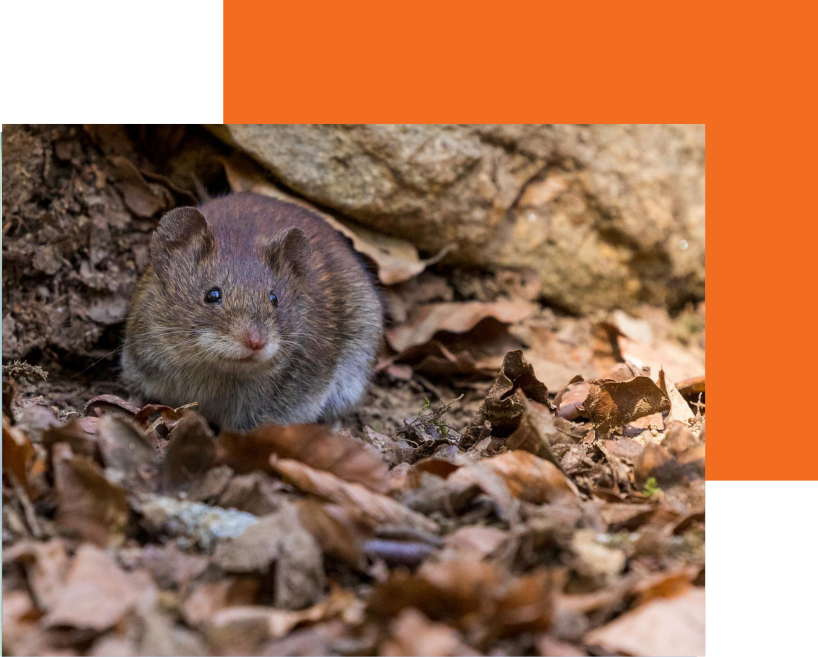Rodents
The slow-building signs of a rodent infestation could be the plot of a horror film. You might hear mysterious noises coming from your walls or see a shadow cross your kitchen at night. A haunting squeak might echo through the dark while you try to sleep, and crumbs might litter your floor when you wake up in the morning. You might even notice holes being chewed through walls, floorboards, or even cereal boxes. The most horrifying but surprisingly common visit from a rodent is through the toilet. Mice and rats are talented swimmers and can wade in the water for days on end, then swim back up through the pipes and startle you when you walk into the bathroom.
These herbivores are furiously hungry, eating as many as 15 to 20 times daily. They are very adept scavengers and can squish their bodies to sneak into extremely small spaces to either reach food, find shelter, or hide.
When people begin suspecting they have a mouse or rat living in their home, their first reaction is often to put out a trap, which is an insufficient for several reasons. The main issue is that many types of traps only catch unaware rodents that wander to the area unprepared. Most rodents are extremely cautious and will spend days monitoring and passing by the traps before they approach them. Further, certain traps like those that use glue or clasps may not be strong enough to hold the rodent and instead will simply frighten them. That causes the rodent to urinate, which spreads bacteria and disease.
Rats and mice have an extraordinary memory. They’re known for remembering complicated mazes and pathways, but their skills go far beyond that. Rats, in particular, have extraordinary episodic memory, meaning they can bring up not only a faint recognition of certain spaces but the exact circumstantial details of why they remember that piece of information. They can familiarize themselves with faces and even names if they’re assigned one. That means that if they are startled by a trap but not caught by it, they’ll know to avoid the area in the future.
Rats are surprisingly compassionate. They look after each other, grooming their companions when they’re untidy and nursing them when they’re sick. Mice also have an affinity for hygiene. Both types of rodents are known for building long tunnels, each with a different purpose. They keep these burrows very clean. The mammals might store food, sleep, travel, and defecate in completely separate tunnels. The dichotomy between the rodents’ longing for cleanliness with their tendency to spread diseases has fascinated scientists for decades. Rats and mice spread over 35 different diseases worldwide.
Cardinal Insect and Pest Solutions isn’t your average company. The owner brings his top-notch, Master’s Degree intellect along with a quarter-century of real-world experience to his company. He passes that knowledge on to the technicians who make sure Cardinal’s services are as well-planned as possible. That makes for effective, efficient, long-lasting pest control that happens to be eco-friendly to boot.


